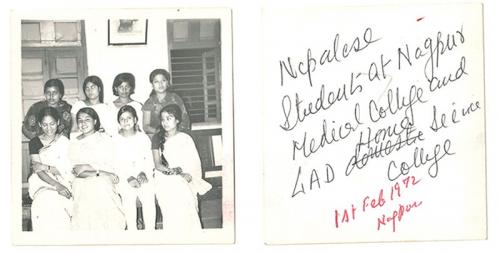Full Text Sharing

FEMINIST MEMORY PROJECT SEMINAR
Nepal Picture Library
As we launch the Feminist Memory Project, Nepal Picture Library will be holding three reading seminars looking at aspects of archiving and historical memory as they pertain to gender and feminist praxis. Starting with the question of how private memories and memorabilia might serve the examination of public and political history, we will consider how power plays into the construction of memory. Participants are expected to arrive to the seminar having read the assigned articles and watched the movies. These materials will serve as the foundation for seminar discussions.
Movies for each week will be screened before the seminar at photo.circle on Friday, 3pm. They will also be made available for those unable to attend the screening.
Participation is free of cost. Space is limited. Please contact us at fmp@nepalpicturelibrary.org by 26th April, if interested.
Seminar 1 | Mon, Apr 30: History Begins at Home
[READINGS]
Antoinette Burton. “Memory Becomes Her,” in Dwelling in the Archive: Women Writing House, Home, and History in Late Colonial India. Oxford/New York: Oxford University Press, 2003. Pp.4-30.
Laura Kunreuther. “Between Love and Property: Voice, Sentiment, and Subjectivity in the Reform of Daughter’s Inheritance in Nepal.” American Ethnologist, 36.3: 2009. Pp.545-562.
Laura Kunreuther. “Publics of Heritage and Domestic Archives among the Nepali Middle Class.” European Bulletin of Himalayan Research, 44: 2014. Pp.39-64.
Maryanne Dever, Sally Newman and Ann Vickery. “The Intimate Archive: Journeys through Private Papers.” Canberra, Australia: National Library of Australia, 2009. Pp.94-137.
[FILM]
Dir. Sarah Polley. Stories We Tell. 118 min, 2012. {Screening: Apr 27, 3pm}
Seminar 2 | Mon, May 7: Thinking through Archives
[READINGS]
Verne Harris. “The Archival Sliver: Power, Memory, and Archives in South Africa.” Archival Science 2, 2002. Pp.63–86.
Ann Cvetkovich. “In the Archive of Lesbian Feelings” in An Archive of Feelings: Trauma, Sexuality, and Lesbian Public Cultures. Durham, North Carolina: Duke University Press, 2003. Pp. 239-271.
Okwui Enwezor. “Archive Fever: Photography between History and the Monument,” in Archive Fever: Uses of the Document in Contemporary Art. New York: International Center of Photography, 2007. Pp.11-51.
Laura Mayhall. “Creating the 'Suffragette Spirit': British Feminism and the Historical Imagination,” in Archive Stories: Facts, Fictions, and the Writing of History, edited by Antoinette Burton. Durham, North Carolina: Duke University, 2005. Pp.232-250.
[FILM]
Dir. Michael Verhoeven. The Nasty Girl. 93 min, 1990. {Screening: May 4, 3pm}
Seminar 3 | Mon, May 14: Memory Makes Us
[READINGS]
Annette Kuhn. “Photography and Cultural Memory: A Methodological Exploration.” Visual Studies, 22:3: 2007. Pp. 283-292.
Alessandro Portelli. “Uchronic Dreams: Working-Class Memory and Possible Worlds.” Oral History, 16.2: 1988. Pp. 46-56.
Yasmin Saikia. “History on the Line: Beyond the Archive of Silence: Narratives of Violence of the 1971 Liberation War of Bangladesh.” History Workshop Journal, Issue 58: 2004. Pp.275-287.
Ariella Azoulay. "Has Anyone Ever Seen a Photograph of a Rape?" in The Civil Contract of Photography. New York: Zone Books, 2008. Pp.203-266.
[FILMS]
Dir. Joshua Oppenheimer. The Act of Killing. 116 min, 2013. {Screening: May 11, 3pm}
[Recommended]
Dir. Joshua Oppenheimer. The Look of Silence. 103 min, 2015.
--
www.photocircle.com.np
www.nepalpicturelibrary.org
www.photoktm.com
---
You received this message because you are subscribed to the Google Groups "photo.circle" group.
To unsubscribe from this group and stop receiving emails from it, send an email to photocirclegroup+unsubscribe@googlegroups.com.










Add new comment